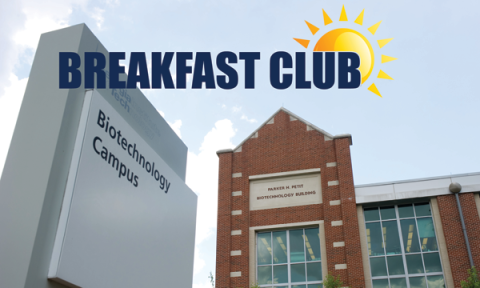event
Breakfast Club Seminar
Primary tabs
"Visualizing Biological Structures by Cryo-EM: From Proteins to Cells"
Ingeborg Schmidt-Krey, Ph.D.
Associate Professor
School of Chemistry
Georgia Tech
Eukaryotic membrane proteins comprise approximately 60% of all drug targets and are consequently immensely important for biomedical research. Despite their importance, only few could thus far be studied at the structural level. My research focuses on the crystallization, structure and function of eukaryotic membrane proteins.
Electron crystallography is the main tool employed to study these proteins in my laboratory. The approach of 2D crystallization and electron crystallography is particularly suitable for highly fragile membrane proteins such as many eukaryotic ones. Initially, this involves testing of conditions for growing two-dimensional (2D) crystals, usually by reconstituting the detergent-solubilized membrane protein into a phospholipid bilayer. Once crystallization parameters have been identified by electron microscopy of negatively stained samples, electron cryo-microscopy (cryo-EM) is employed to collect high-resolution data. The structure is then obtained by image processing.
Although electron crystallographic methods are well developed, little is known about the factors important in 2D crystallization, and screening protocols as for 3D crystallization do not exist. An important sideline of my research interests aims at developing screening methods and strategies for 2D crystallization and understanding the underlying mechanisms. Further directions of methods development are geared towards cryo-EM data collection and analysis.
The Parker H. Petit Institute for Bioengineering and Bioscience, an internationally recognized hub of multidisciplinary research at the Georgia Institute of Technology, brings engineers, scientists, and clinicians together to solve some of the world’s most complex health challenges. With 18 research centers, more than 180 faculty members, and $24 million in state-of-the-art facilities, the Petit Institute is translating scientific discoveries into game-changing solutions to solve real-world problems.
Groups
Status
- Workflow status: Published
- Created by: Colly Mitchell
- Created: 11/09/2015
- Modified By: Fletcher Moore
- Modified: 04/13/2017
Categories
Keywords
Target Audience

